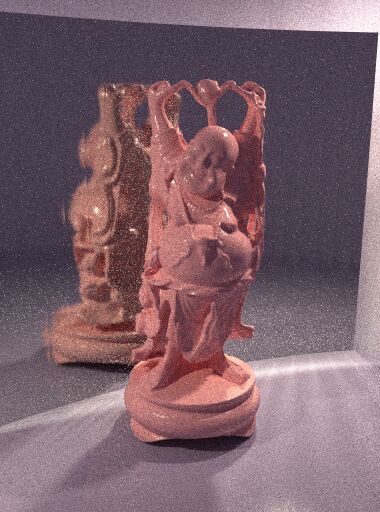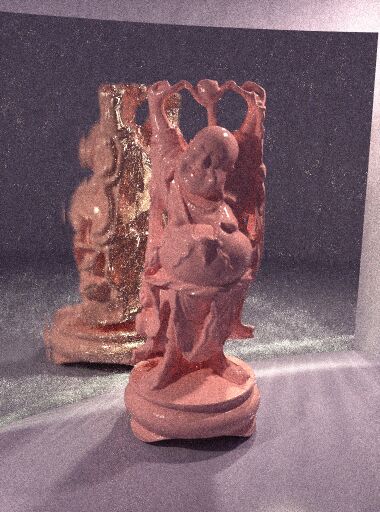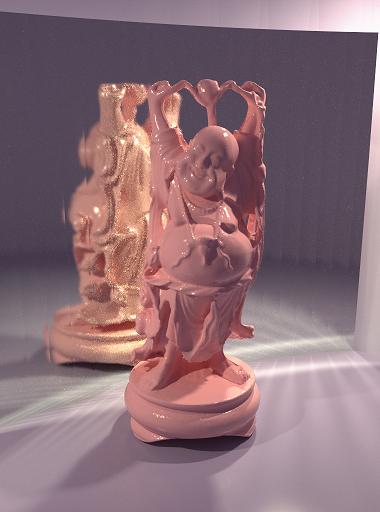
Bidirectiona path tracing using 25 samples per pixel

Bidirectional path tracing with Metropolis sampling using 25 samples per pixel

Reference image
Abstract:
This paper presents a new mutation strategy for the Metropolis light transport algorithm, which works in the unit cube of pseudo-random numbers instead of mutating in the path space. This transformation makes the integrand have lower variation and thus increases the acceptance probability of the mutated samples. Higher acceptance ratio, in turn, reduces the correlation of the samples, which increases the speed of convergence. We use both local mutations that choose a new random sample in the neighborhood of the previous one, and global mutations that make ``large steps'', and find the samples independently. Local mutations smooth out the result, while global mutations guarantee the ergodicity of the process. Due to the fact that samples are generated independently in large steps, this method can also be considered as a combination of the Metropolis algorithm with a classical random walk. If we use multiple importance sampling for this combination, the combined method will be as good at bright regions as the Metropolis algorithm and at dark regions as random walks. The resulting scheme is robust, efficient, but most importantly, is easy to implement and to combine with an arbitrary random-walk algorithm.
Keywords:
Metropolis sampling, importance sampling, Bi-directional path tracing.

Bidirectiona path tracing using 25 samples per pixel |

Bidirectional path tracing with Metropolis sampling using 25 samples per pixel |

Reference image |
